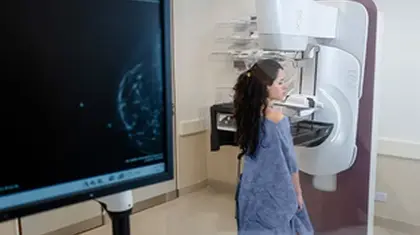
- Eli Lilly & Company, the maker of anti-amyloid Alzheimer’s treatments, was expecting its experimental drug donanemab to be approved by the FDA this month.
- However, the FDA has said it will hold a panel with external advisors to evaluate the safety and efficacy of donanemab before it makes a decision later this year.
- Although the FDA’s decision was a surprise, some experts say a more cautious approach would be beneficial for patients, considering the drug is in early trials and there is little evidence of its benefits.
Eli Lilly announced Friday that the U.S. Food and Drug Administration (FDA) had established a committee to evaluate donanemab, the Alzheimer’s drug that had its approval blocked last year. The committee is expected to convene later this year before the FDA makes a final decision about approving donanemab. The announcement, however, has come as a surprise for many.
But what does this decision mean for Alzheimer’s patients? Here’s what experts think.
Donanemab is one of three
Dementia affects more than
Both
Dr. Howard Fillit, MD, co-founder and chief science officer of the Alzheimer’s Drug Discovery Foundation (ADDF), told Medical News Today that while such a committee is not unusual for a new drug, what is unique about this one is that since the results on efficacy and safety were so similar to Leqembi, it wasn’t expected that a committee would be established.
“I think, as they got into the due diligence on the drug, they realized there were a few things about it that they wanted to have an advisory committee on: basically three things,” he said.
“There was some added benefit on efficacy, but some increase in the safety signal. There was a very unique, limited dosing schedule regimen that donanemab had, which has a lot of implications for clinical care. And there was the tau imaging, which was used for entry into the trial, but they wanted to know whether or not the tau imaging would be on the label and be required for clinical use in the real world,” he explained.
Meanwhile, Dr. Clifford Segil, DO, a neurologist at Providence Saint John’s Health Center in Santa Monica, CA, told Medical News Today that he hopes the FDA committee will ultimately not approve donanemab, citing the experimental drug’s risks.
“I am hoping this is the beginning of the end to having anti-amyloid medications FDA-approved for the treatment of Alzheimer’s dementia. Clinical neurologists continue to not use this family of medications as they have not significantly improved patients’ memory loss in the drug trials and have caused severe cerebral edema and intracranial bleeding,” Dr. Segil said.
“There is no data it makes patients with Alzheimer’s dementia have any significant improvement in their cognitive complaints,” he added.
Currently available treatments for Alzheimer’s can help manage symptoms but not change the course of the disease. In an international phase 3 trial, compared to placebo,
In a combined population that included people with low/medium levels of tau as well as people with high levels of tau, donanemab slowed cognitive decline by about 22%.
The risks of amyloid-related imaging abnormalities (ARIAs) can produce brain swelling or bleeding. There were also some concerns with the population of the study, in which more than 91% of the participants were white.
Dr. Fillit said he fully expects the FDA to ultimately approve donanemab, citing the trial data and the safety measures in place to monitor the risks of ARIA.
“All drugs have a risk,” Dr. Fillit said, citing the Swiss 16th-century chemist Paracelsus quote about the only difference between a drug and a poison being a dose.
“First of all, on entry into the trial, we don’t want people on anticoagulants because of the possibility of these ARIA edema and hemorrhage findings on MRI that can occur. And we want to know that person’s APO lipoprotein E genotype because people that are carrying the APOE ε4 gene are at more risk for developing some of the ARIA side effects as well,” he continued.
“So in getting into the trial, we have a bleeding disorder or anticoagulants would probably not be recommended for the drug. And people that are certainly homozygote e4 would require careful monitoring if they went on the drug,” he added.
MRIs to monitor brain bleeding
Dr. Fillit also said that careful monitoring would be required in the early stages of treatment, with MRIs in the first three to five months while potentially looking for ARIA or other signs that the drug should be halted.
“If they do occur, basically, the drug is withheld for a period of time and then reinstituted on the transfusion and stopped for a period of time,” Dr. Fillit said.
“But in the APOE ε4 people, if they’re homozygote and they have two APOE ε4’s and they develop bleeding or hemorrhage in the brain, the ARIA side effects or edema, then they may just be stopped and not put back on, depending on the severity of those findings on MRI.”
However, Dr. Segil said he believes the risks are too high for him to recommend donanemab or similar drugs.
“As a clinical neurologist who treats and diagnoses patients with dementia, I do not believe drugs like donanemab are effective treatments for patients with Alzheimer’s dementia,” Dr. Segil said.
“These medications’ risks of brain bleeds and brain edema outweigh any benefits. Like many neurologists in clinical practice, I will not use [this] family of medications. Amyloid medications were marketed in the past to neurologists to resolve neuropathy symptoms and these medications are no longer being used. It is my hope donanemab’s revoked FDA application is another nail in the coffin for [this] family of medications going away,” he said.





